The Museo Picasso Málaga collection celebrates the life and works of Pablo Picasso and covers almost 80 years of Pablo Picasso’s work. Is it worth visiting?
By Liza S. | Updated 7 Oct 2023 | Málaga | Places To Go |
Login to add to YOUR Favourites or Read Later
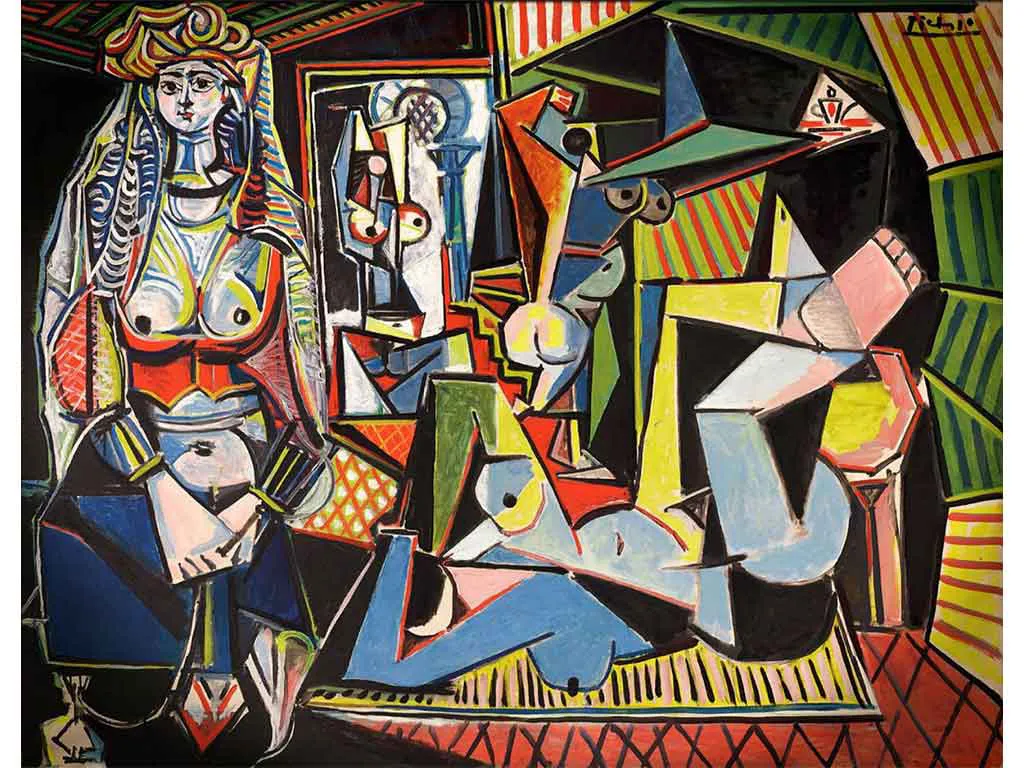
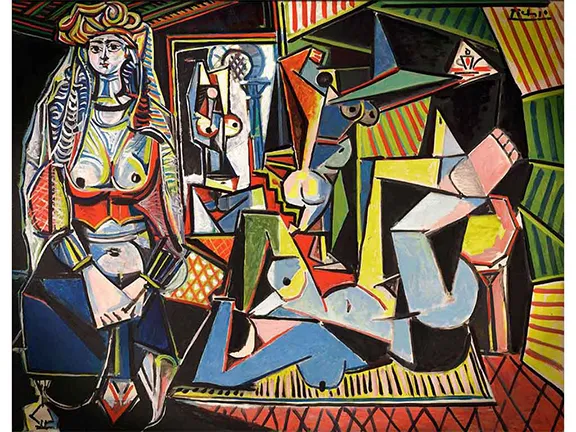
Women of Algiers
The Picasso Museum in Malaga stands as a proud tribute to Pablo Picasso, one of the world's most influential artists. Located in the city where Picasso was born, the museum is a must-visit for those interested in modern art.
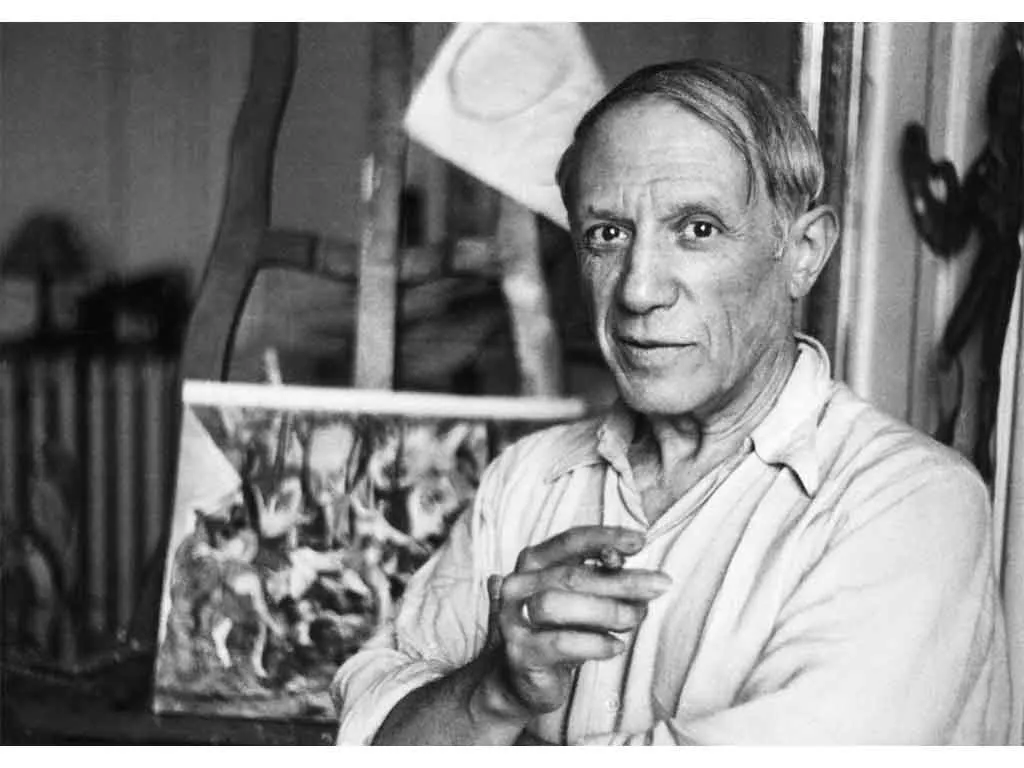
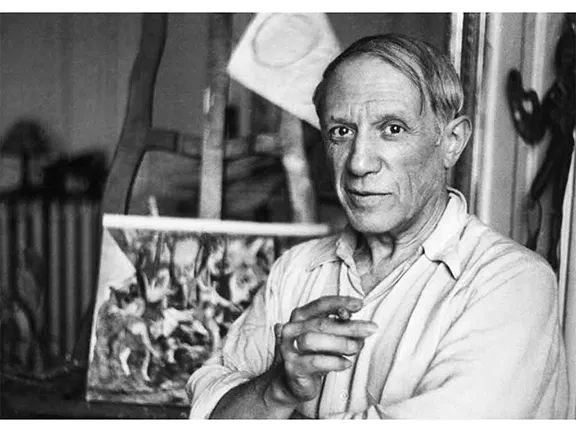
Pablo Picasso
On the 25th October 1881, in Malaga, a son was born to Don José Ruiz y Blasco and María Picasso y López. He was given the name Pablo Diego José Francisco de Paula Juan Nepomuceno María de los Remedios Cipriano de la Santísima Trinidad Ruiz y Picasso, more familiarly known as Pablo Picasso.
He was to become one of the most influential artists of the 20th century.
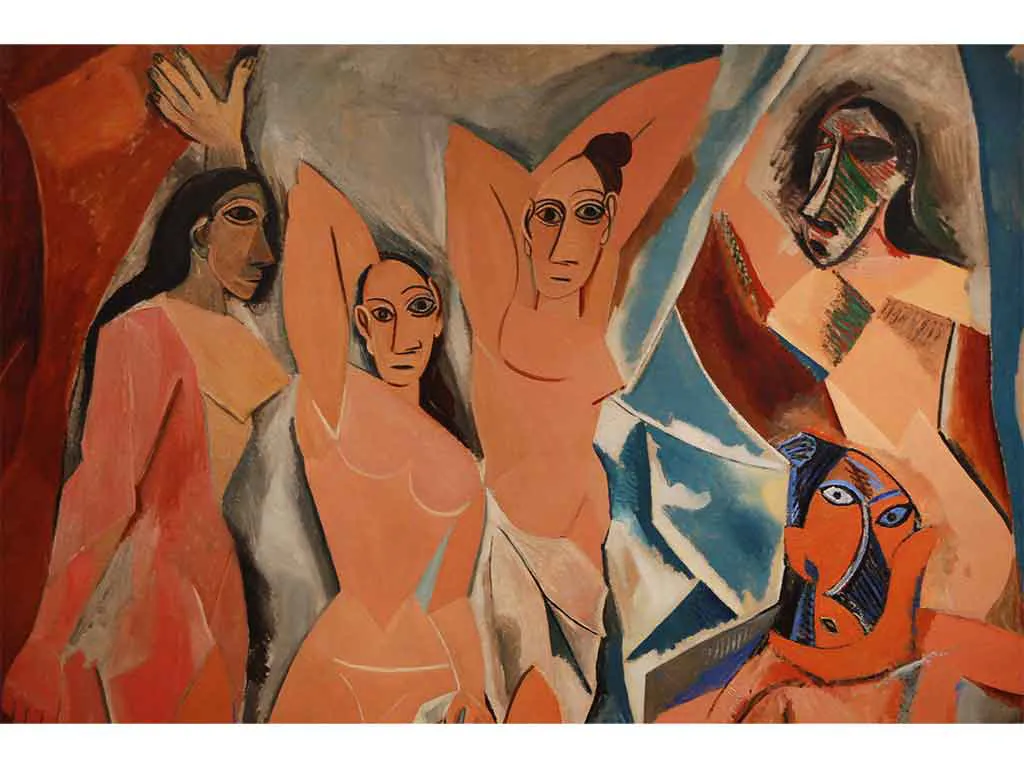
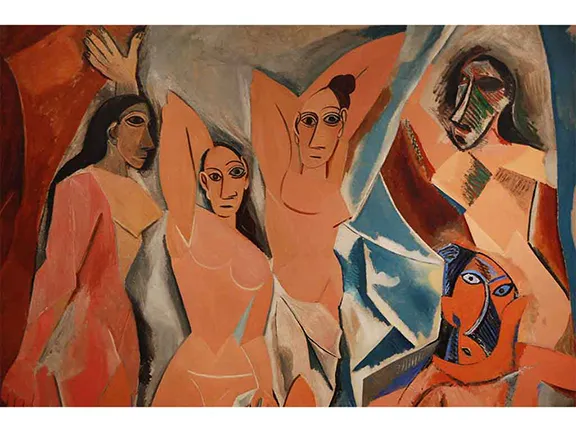
Les Demoiselles d'Avignon
Picasso was exceptionally prolific throughout his long lifetime (he died at age 91 in 1973). At his death there were more than 45,000 unsold works in his estate, comprising 1,885 paintings, 1,228 sculptures, 3,222 ceramics, 7,089 drawings, 150 sketchbooks, many thousands of prints, and numerous tapestries and rugs.
The most complete catalogue of his works, the 'Catalogue Raisonné' compiled by Christian Zervos, lists more than 16,000 paintings and drawings. His most famous works are the proto-Cubist Les Demoiselles d'Avignon (1907), and Guernica (1937), a dramatic portrayal of the bombing of Guernica by German and Italian air forces during the Spanish Civil War.
What many consider his most important work, ‘Women of Algiers’ sold at auction in 2015 for over $179 million.
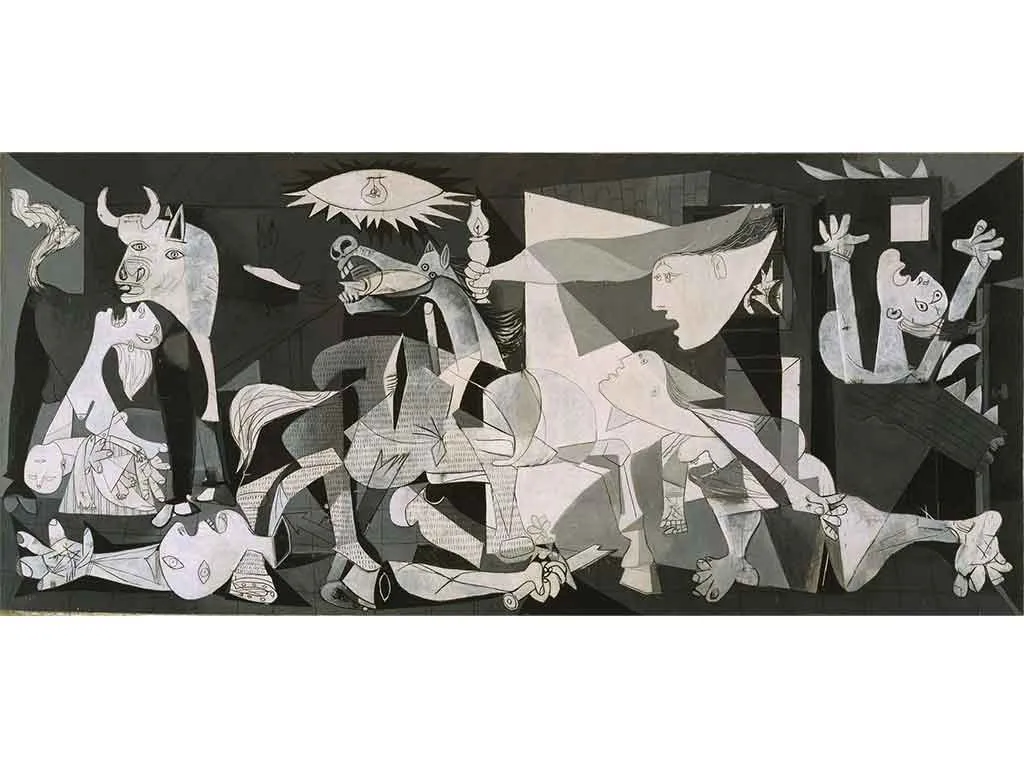
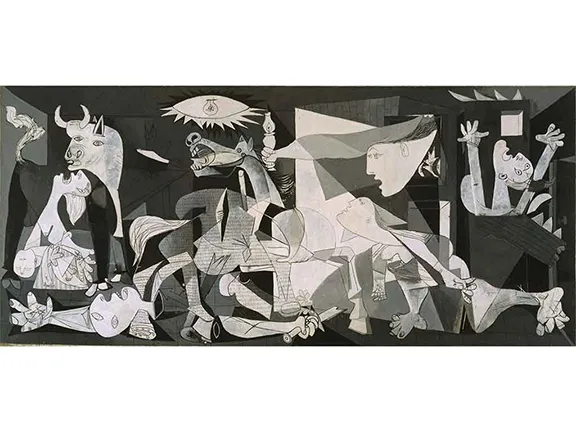
Guernica
Given that Malaga was Picasso’s birthplace, it’s no surprise that there’s a museum in the city to honour his work. But more than that, Picasso himself expressed a strong wish for his work to be displayed in his city of birth.
In 1953, Picasso mooted the idea for a museum to showcase his works but the idea fell through. It was only later in the 1990s that the idea for a Picasso museum was revived, following two successful Piccasso exhibitions in Malaga which were the first time his works were exhibited in Andalucia.
In 1996, following the strong response to the exhibitions, Christine Ruiz-Picasso, widow of the artist’s eldest son, Paul Ruiz-Picasso, followed through with the artist’s wishes to open a Picasso Museum in Malaga.
On 27 October 2003, the Museo Picasso Málaga was officially opened and inaugurated by Their Majesties King Juan Carlos I and Queen Sofía. Over 230 works that were donated by Christine and Bernard Ruiz-Picasso (the artist’s grandson) have become the foundation of the permanent collection of the museum.
Set within the Buenavista Palace, a 16th-century Andalucian building, the Picasso Museum in Malaga city provides an interesting contrast between historical architecture and modern art. This setting offers visitors a unique space in which to explore and celebrate the life and works of Pablo Picasso.
As an artist, Picasso’s life has been defined by the ‘periods’ of art in which he worked, the Blue Period (1901–1904), the Rose Period (1904–1906), the African-influenced Period (1907–1909), Analytic Cubism (1909–1912), and Synthetic Cubism (1912–1919).
Much of Picasso's work of the late 1910s and early 1920s is in a neoclassical style, and his work in the mid-1920s often has characteristics of Surrealism. His later work often combines elements of his earlier styles.
The Museo Picasso Málaga collection covers almost 80 years of Pablo Picasso’s work and over 200 pieces, illustrating the rigour and creative ability of an artist who many consider is essential to understanding the history of Western art. With this selection of works on show, the museum provides a look at the diverse themes and techniques that Pablo Picasso mastered. From his beginnings to his later years, the ensemble enables the visitor to understand the crucial importance of his legacy in the history of art.
What makes the collection special is its intimate nature. Many of the pieces were gifts from Picasso to his family, meaning they're exclusive to this museum.
Alongside the major works, the museum also displays sketches, ceramics, and sculptures, providing insight into Picasso's varied skills and creative process. These pieces highlight the depth and range of his talents, showing him as more than just a painter.
Regularly, the museum hosts temporary exhibitions. These might focus on a particular aspect of Picasso's work or showcase other contemporary artists. These changing exhibitions ensure that the museum always offers something new for both first-time and returning visitors.
The museum also emphasises education. Through workshops and programmes, visitors of all ages can engage with Picasso's work in a hands-on way, whether by attending a pottery class inspired by his ceramics or a lecture about his impact on art.
Whether or not you’re an art lover, the Picasso Museum in Malaga is worth visiting. Picasso wasn’t just a world-famous artist; he was Malaga’s pride. By visiting this museum, you step into the heart of the city’s cultural identity. It's an opportunity to engage with Malaga's history, seeing the environment that birthed and shaped such a monumental figure.
If you are interested in Picasso’s art and life, then the Picasso Museum in Malaga is a must-visit in Malaga, even if you’ve already been to the Picasso Museum in Barcelona. The majority of the collection here were donated by Picasso’s family and are exclusive to the museum. And with the rich variety of artwork on display, from ceramics to sketches and sculptures, there’s likely something that will resonate with you, regardless of your art preferences.
In essence, the Picasso Museum is a clear reflection of Picasso's contributions to the art world. You’ll come away with a better understanding of his work and the significant role he played in modern art. If you're in Malaga, this museum is well worth your time.
Both the Picasso Museum in Malaga and the Picasso Museum in Barcelona are dedicated to the works of the renowned artist Pablo Picasso, but having visited both museums, I found them quite different. They have distinct differences in terms of their collections, origins, and focuses.
The Picasso Museum in Malaga was established to honour Picasso in the city of his birth and, as mentioned above, it was Christine and Bernard Ruiz-Picasso, the artist’s daughter-in-law and grandson who revived the idea of the museum and ultimately donated many works to the museum.
Many pieces in the Malaga museum were personal gifts from Picasso to his family members. As a result, several of these artworks are exclusive to this museum and cannot be seen elsewhere.
On the other hand, the Picasso Museum in Barcelona was founded upon Picasso's own initiative, with his close friend and personal secretary, Jaume Sabartés, playing a pivotal role. Picasso spent his formative years in Barcelona, and the Barcelona museum reflects his deep connection to the city.
The collection in Barcelona is also much bigger, with over 4,000 works. Many of these pieces were donated by Picasso himself, especially after Sabartés' death.
As a visitor, what was most distinct to me were the collections in both museums.
The collection in Malaga encompasses Picasso's entire career, showcasing his versatility across different periods, from his early academic studies to his later experimental phases. As such, I was able to get a comprehensive overview of Picasso's evolution across his art career.
The Barcelona museum, although it houses more works, has a more specific focus. In this museum, you’ll discover more about Picasso's formative years, as there is a strong emphasis on his works from the Blue Period and an extensive collection of his early sketches and academic studies.
Both museums, while centred around the same artist, offer unique glimpses into Picasso's life and works. Depending on your specific interests – be it Picasso's early years, his relationship with a particular city, or the breadth of his entire career – you might find one museum more appealing than the other.
However, if you’re at all interested in Picasso’s life and works, both institutions are invaluable in understanding the depth and range of his genius.
If you’re visiting the Picasso Museum Malaga during peak tourist seasons, it's a good idea to buy tickets in advance to avoid long queues.
Check the availability for your visit date below.
For a more in-depth experience of the Picasso Museum in Malaga, consider taking a guided tour where you’ll learn more anecdotes and stories about Picasso’s life as well as greater insight on his works.
Do note that the museum offers free entry on the following days/days:
The museum also offers free entry or reduced rates for certain categories of visitors. Please check the official museum website for more details on these.
The Picasso Museum is situated in the historic centre of Malaga at Palacio de Buenavista. If you're staying in or around the historic centre, the museum is easily accessible by walking. There are also several bus stops near the museum (located at Paseo del Parque-Ayuntamiento and Plaza de la Merced), if you’re coming from outside the Malaga Old Town.
The Picasso Museum Malaga is typically open daily from 10.00am to 7.00pm although closing times do vary depending on the season. The museum is closed on 25th December, 1st January, and 6th January.
It's recommended to check the current opening hours on the museum's official website before your visit.
Depending on your interest level, a typical visit to the Picasso Museum Malaga can last anywhere from 1 to 3 hours.
For more on Malaga, check out our other articles:
Click here to visit the official Museo Picasso Málaga website